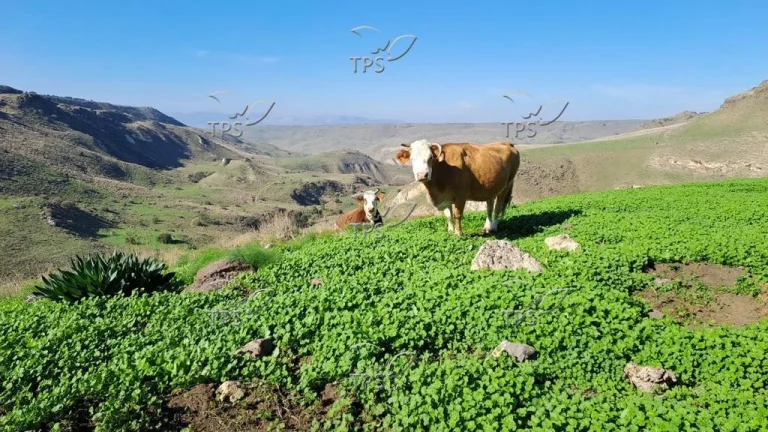Jerusalem, 12 August, 2025 (TPS-IL) — israeli scientists have unveiled a promising strategy to combat antibiotic resistance on farms by using combinations of natural antimicrobial peptides. This approach could slow the rise of dangerous “superbugs” that threaten livestock, crops, and human health worldwide, researchers from the Hebrew University of Jerusalem said on Tuesday.
Led by PhD student Bar Maron in collaboration with Professors Jonathan Friedman and Zvi Hayouka from the Faculty of agriculture, Food and Environment, the research focuses on antimicrobial peptides (AMPs) — small proteins found in the immune systems of nearly all living organisms. While it was already known that these peptides can kill bacteria, the team discovered a crucial new insight: combining two different peptides dramatically slows the bacteria’s ability to develop resistance, compared to using a single peptide alone.
“Bacteria are smart. When you hit them with one weapon, they often find a way around it,” said Hayouka. “But when we used two peptides at once, it was like closing all the escape routes.”
The researchers tested three peptides: melittin from bees, temporin from frogs, and pexiganan, a synthetic peptide inspired by nature. They exposed Staphylococcus aureus, a common pathogen in animals and humans, to these peptides and observed how quickly the bacteria mutated.
They found that wWhen treated with just one peptide, the bacteria quickly developed genetic resistance. However, when two peptides were combined, the bacteria struggled to mutate and remained vulnerable much longer.
This discovery is especially important for agriculture, where overuse of antibiotics in poultry, dairy, and crop farming has fueled resistant bacteria that threaten animal health and farmer livelihoods.
“These peptides are part of nature’s own defense system. Animals have been using them for millions of years,” Prof. Friedman said. “By borrowing from nature and using them wisely, we can tip the scales back in our favor.”
The findings open the door to developing new natural treatments — such as feed additives or topical applications — that could control infections without promoting resistance. Such methods would reduce reliance on traditional antibiotics and support more sustainable farming practices amid the global antimicrobial resistance crisis.
The scientists note that further research is needed before these peptide combinations can be widely adopted on farms.
The study was published in the peer-reviewwed journal iScience.































